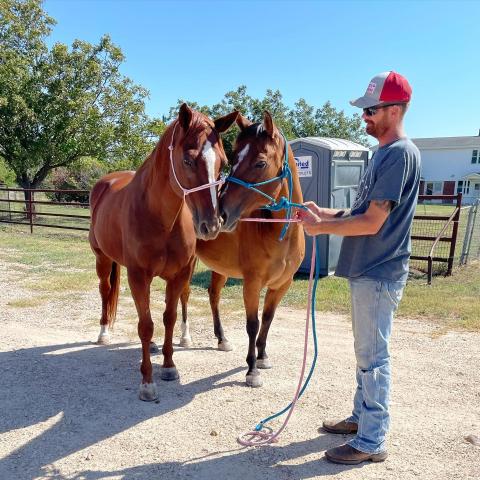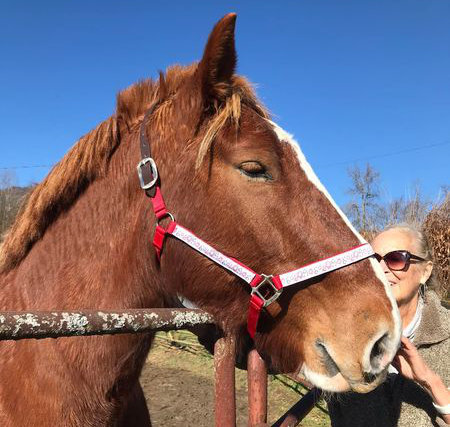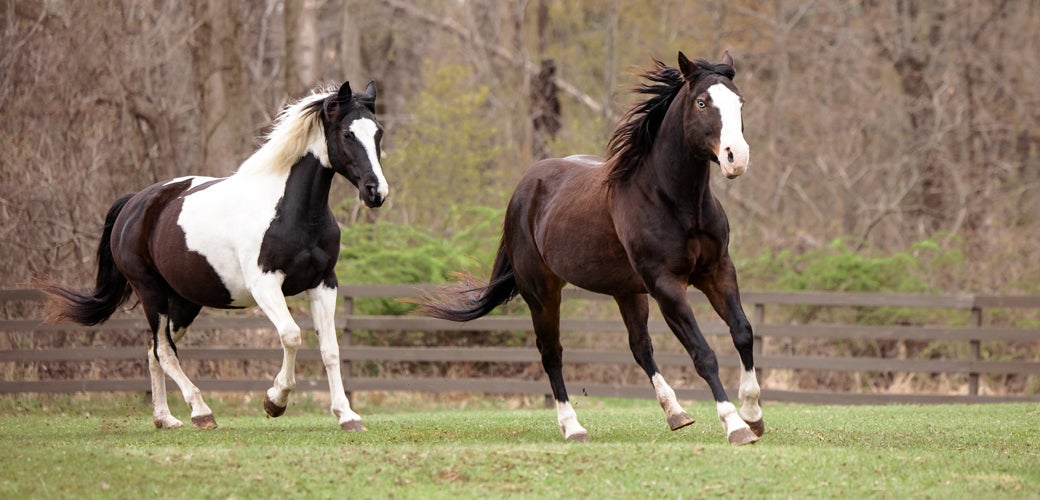Understanding The Plight Of Kill Pen Horses: A Call To Action
The majestic beauty and gentle spirit of horses have captivated humanity for centuries. Yet, beneath the idyllic images, a grim reality persists for countless equines in the United States: the "kill pen." These facilities represent the last stop for many horses before an unthinkable journey, highlighting a heartbreaking facet of the equine industry. In 2023 alone, over 20,000 American horses were transported to Mexico and Canada to be slaughtered for human consumption. This cruel practice, often out of sight and out of mind, is a stark reminder that every horse in the U.S. is potentially at risk. This article aims to shed light on what kill pens are, why horses end up there, and how you can truly make a difference in their lives.
What Exactly Are Kill Pens?
At their core, "kill pens" are holding facilities where unwanted or neglected horses are collected. These facilities function as a critical part of a transit system that often leads to slaughter. Horses found in kill pens are typically acquired cheaply, often from local livestock auctions, but also from Craigslist ads, "free-bee" ads, and even from reputable websites like Dreamhorse if a horse is being undervalued enough. They are held in these pens until their "ship date," which refers to the day they are transported to slaughterhouses, primarily in Mexico or Canada, as slaughter is not legal in the U.S. but kill pen buyers are.
The conditions within these pens are often far from ideal. Horses are held in "cramped, unhealthy and under-kept conditions," enduring stress, hunger, and vulnerability to sickness and injury. Most kill pens are strategically located in areas with enough horses to fill slaughter trucks regularly, meaning multiple truckloads per week are dispatched. Organizations like Stroud Oklahoma Kill Pen Horses, located in Stroud, Oklahoma, are bonded livestock dealers working to rehome horses from these situations, offering a glimmer of hope for some animals caught in this pipeline.
The Journey to the Kill Pen: Why Do Horses End Up There?
The reasons a horse might end up in a kill pen are varied and often complex, reflecting a broader issue of irresponsible ownership, economic hardship, and an oversupply of horses. While some might imagine only old, sick, or injured horses end up there, the reality is far more tragic. As Copper Horse Crusade aptly states, "Because too many good horses end up in the kill pen™," including many with "few [if any] injuries, infirmities."
Common reasons include:
- Economic Hardship: Owners facing financial difficulties may no longer be able to afford the extensive costs of horse care, including feed, veterinary services, and farrier work.
- Lack of Training or Suitability: A horse might be purchased without a full understanding of its temperament, training needs, or suitability for a specific discipline, leading to an owner becoming overwhelmed.
- Aging or Injury: Older horses or those with chronic injuries may no longer be ridden or perform as desired, leading owners to seek an easier way to rehome them.
- Unwanted Offspring: Unplanned or unwanted foals from irresponsible breeding contribute to the horse population, making it harder for all horses to find homes.
- Auction Pipeline: Horses are often sold at livestock auctions, where prices can be very low, making them attractive to kill buyers who then funnel them into kill pens.
- Owner Neglect or Abandonment: Sadly, some horses are simply neglected or abandoned, eventually finding their way into the system.
These circumstances create a constant flow of horses into kill pens, where their lives hang in the balance until a "bail-out" or a "ship date" determines their fate.
The "Bail-Out" System: A Double-Edged Sword
When a horse is identified in a kill pen, often through social media pages run by the pens themselves or by rescue advocates, the immediate instinct for many compassionate individuals is to "bail out" the horse. This involves paying a fee, which can range from $100 to $1,000, to release the horse from the pen before it is shipped to slaughter. Organizations like "Last Chance Kill Pen Horses For Rescue-Asheboro Nc" work tirelessly to facilitate these last-minute rescues, preventing horses from shipping to Canada or Mexico for slaughter.
While the act of bailing out a horse undeniably saves an individual life, the system itself is fraught with controversy. Critics argue that "Equine “kill pen bail-outs” are deceitful operations that buy and sell horses, placing profit over the horses’ well-being." By purchasing horses from kill pens, even with the best intentions, it can inadvertently support the kill pen business model, creating a demand that keeps the pipeline flowing. Some argue that if you shut down kill pen pages, "regardless of who’s making money – you take away the ability to rescue horses from the slaughter pipeline; which is brutally abusive and traumatic." This highlights the complex ethical dilemma: do you save an individual horse knowing it might perpetuate the system, or do you stand by and watch?
It's also crucial to understand the risks involved in bailing out horses directly. As stated by Stroud Oklahoma Kill Pen Horses/Baker Stables, they are "NOT responsible for any sickness, injury, weight loss or death to any equine listed, sold or while under our boarding services." Horses from kill pens are often stressed, malnourished, and exposed to various diseases, requiring significant veterinary care and rehabilitation once rescued.
The Role of Rescues and Advocates
Amidst the challenges, numerous dedicated individuals and organizations are working to provide alternatives and rescue horses from the slaughter pipeline. Groups like Stroud Oklahoma Kill Pen Horses, a bonded livestock dealer, actively work to rehome horses. Other entities, such as those offering "Kill Pen & Auction Horses" in Healdton, Oklahoma, provide nationwide transportation and temporary boarding options, facilitating the rescue process. "Here at the farm, we have a big heart for helping horses and donkeys from the kill pen," showing a widespread commitment to these vulnerable animals.
These organizations rely heavily on public support. All horses found in kill pens need a home, and crucially, they need "donations toward their immediate care out of the pen, plus donations toward the bail fees the kill pen demands to release them." Thanks to such efforts, in 2021, many horses were saved, demonstrating the power of collective action.
How You Can Truly Make a Difference
Saving a horse from a kill pen is a noble act, but addressing the root causes of the problem requires a broader approach. Here's how you can make a more sustainable impact:
Support Reputable Rescues
- Donate: Financial contributions are vital for rescues to cover bail fees, veterinary care, feed, and rehabilitation. Many reputable rescues have transparent operations and can provide detailed information on how your donations are used.
- Volunteer: If you have time and skills, offer to help at a local equine rescue. This could involve direct horse care, facility maintenance, or administrative tasks.
- Adopt, Don't Shop: If you're looking for a horse, consider adopting from a reputable rescue. These horses have often been rehabilitated and assessed, making them a safer choice than a direct kill pen purchase.
- Foster: Fostering provides a temporary home for a horse, freeing up space at the rescue and allowing the horse to decompress and heal in a more personal environment.
- Educate Yourself: Before engaging in any rescue efforts, "Discover the truth about kill pens and how you can truly save a horse's life. Read our eye-opening article on equineinfoexchange.com today!" Understanding the complexities helps you make informed decisions.
Advocate for Policy Change
- Contact Legislators: Express your support for legislation that would ban horse slaughter in the U.S. and prevent the export of horses for slaughter.
- Raise Awareness: Share information about kill pens and the horse slaughter industry with your friends, family, and social networks. The more people who are aware, the stronger the movement for change.
- Support Anti-Slaughter Organizations: Donate to or volunteer with organizations specifically dedicated to ending horse slaughter.
Practice Responsible Horse Ownership
- Responsible Breeding: If you own mares and stallions, avoid accidental or irresponsible breeding. The market for horses is already saturated.
- Long-Term Planning: Consider your horse's entire lifespan. Have a plan for their care, even if your circumstances change. This includes budgeting for potential health issues and old age.
- Rehoming Responsibly: If you must rehome a horse, take the time to find a suitable, loving home directly, rather than selling them to an auction or someone who might send them to a kill pen.
A Final Word
The existence of kill pens is a harsh reality for countless horses, driven by a complex interplay of economics, lack of awareness, and irresponsible practices. From their origins in local auctions and classifieds to their grim holding conditions, these facilities represent the last stop for many before an unimaginable fate. While the immediate act of bailing out a horse provides individual salvation, true, lasting change requires a multi-faceted approach. By supporting reputable rescues, advocating for policy change, and practicing responsible horse ownership, we can collectively work towards a future where "too many good horses" no longer end up in the kill pen, and every horse has a chance at a life of dignity and care.

Hopeless to home, rescuing horses from kill pens | IFundWomen

Meet Atlas - Rescued From the Kill Pen - Bearfoot Ranch Equine Therapy

Kill Pen Bail-Outs | Help Horses | ASPCA